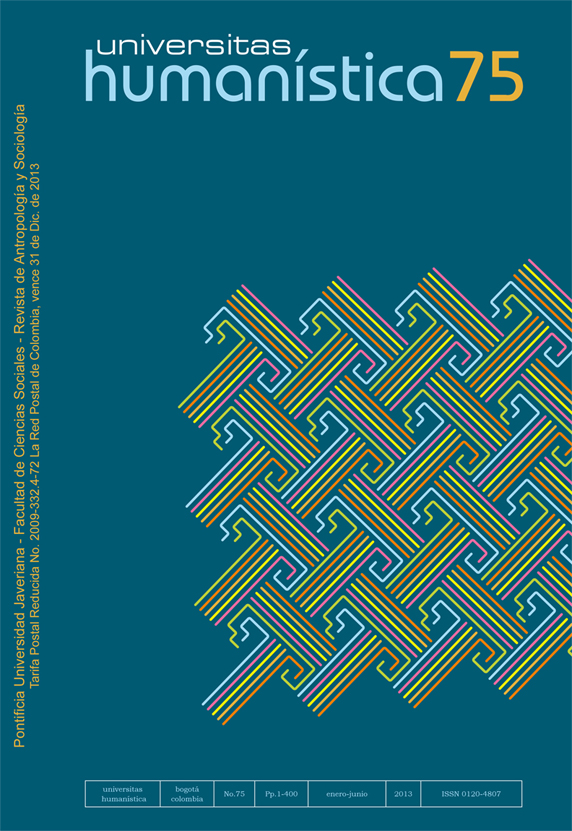Methodologies that shame us: A proposed twin-track research and its ephemeral influence on anthropology
##plugins.themes.bootstrap3.article.details##
Abstract
This article discusses the experience of Victor Daniel Bonilla and Luis Guillermo Vaco,two social scientists in Colombia who, during the 1970s and 1980s created a proposal forethnographic work in conjunction with the indigenous movements in Colombia, from theirwork in the Committee of solidarity with Indigenous Peoples (Comité de solidaridad con lospueblos indígenas). The text proposes an explanation to the question of why this proposalwas rejected and was not developped in the exercise of the anthropological subsequentgenerations. I affirm in this article that the proposal of this group of researchers requiresof joint political construction spaces between the academic researchers and the socialorganizations when their society projects converge, but this requires a prior debate. Thecollaborative research can not exist if there are no articulation spaces that have been builtalong the path of social organizations, nor can be forced to exist outside of them.
Keywords
História da antropologia, Antropologia na América Latina, Movimentos indígenas, EtnografiaHistoria de la antropología, Antropología en América Latina, Movimientos indígenas, EtnografíaHistory of anthropology, Anthropology in Latin America, Indigenous movements, Ethnography
References
How to Cite
Caviedes, M. (2013). Methodologies that shame us: A proposed twin-track research and its ephemeral influence on anthropology. Universitas Humanística, 75(75). Retrieved from https://revistas.javeriana.edu.co/index.php/univhumanistica/article/view/5960
Section
Controversia


